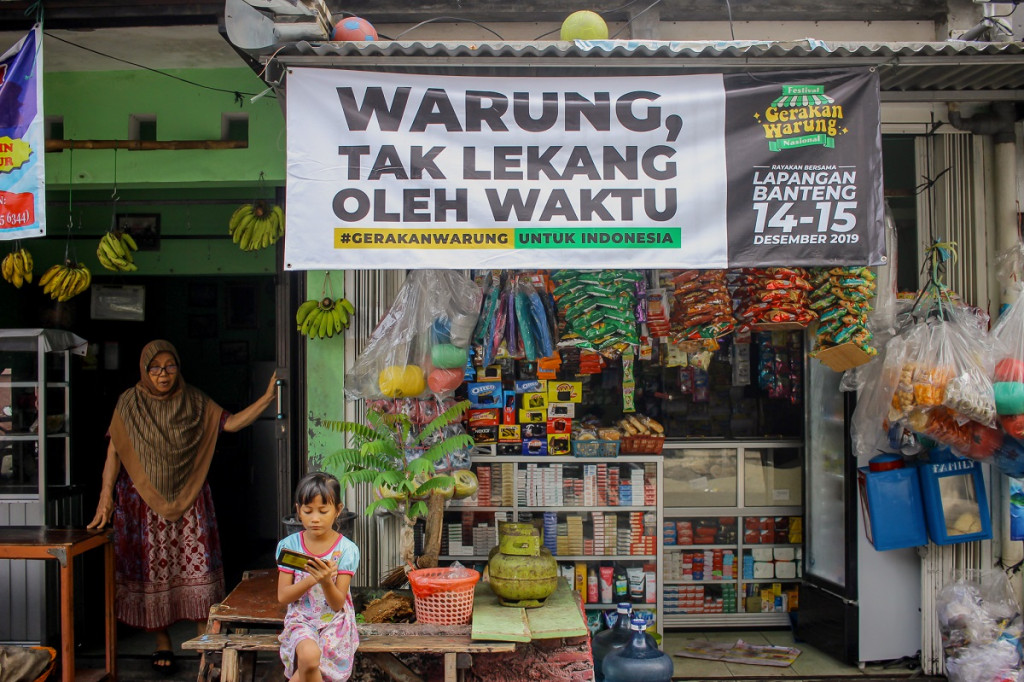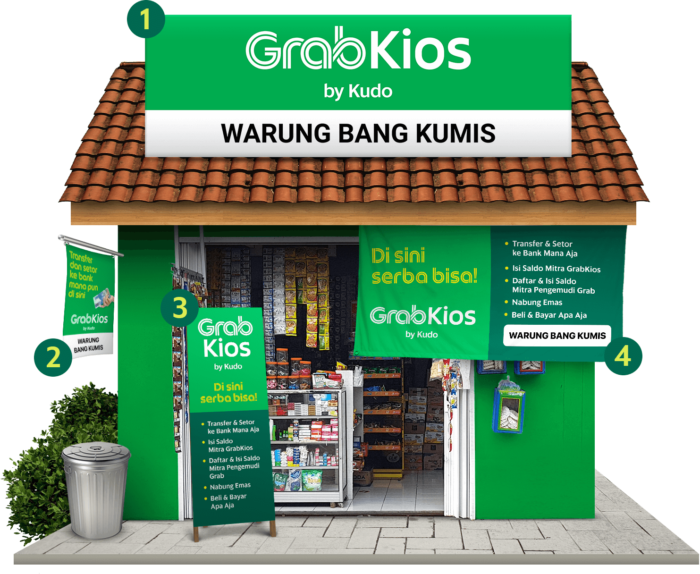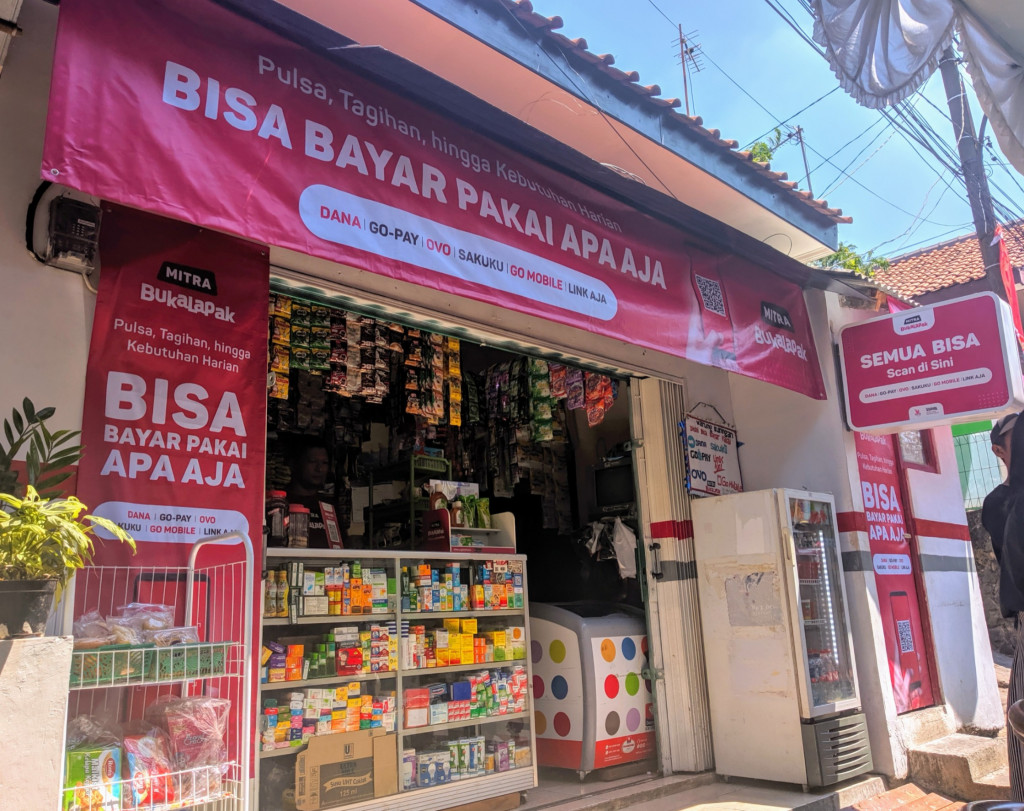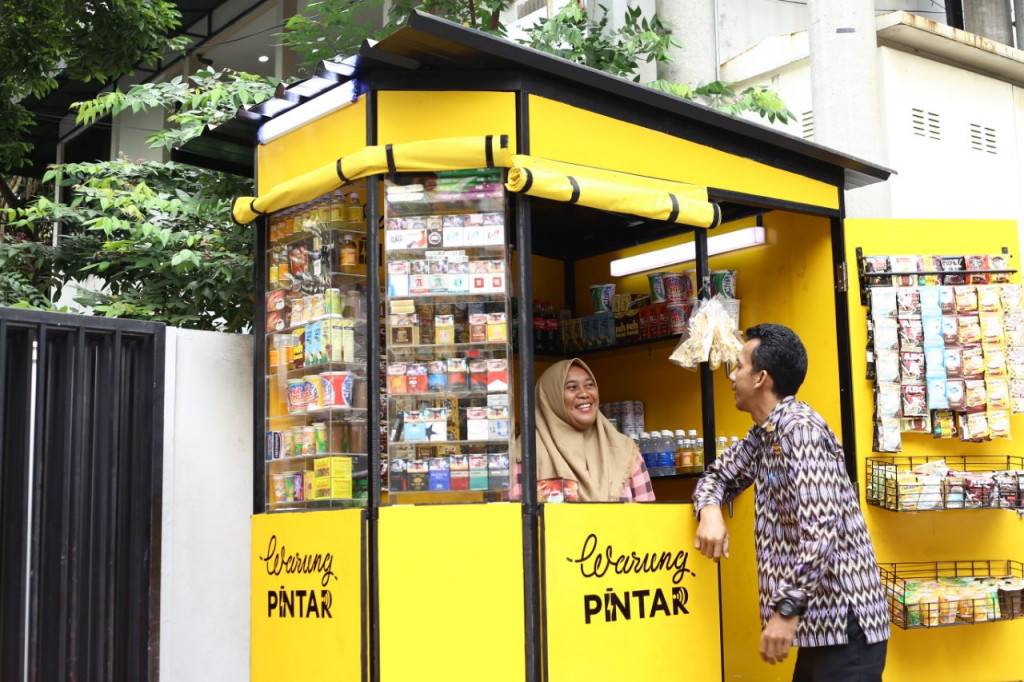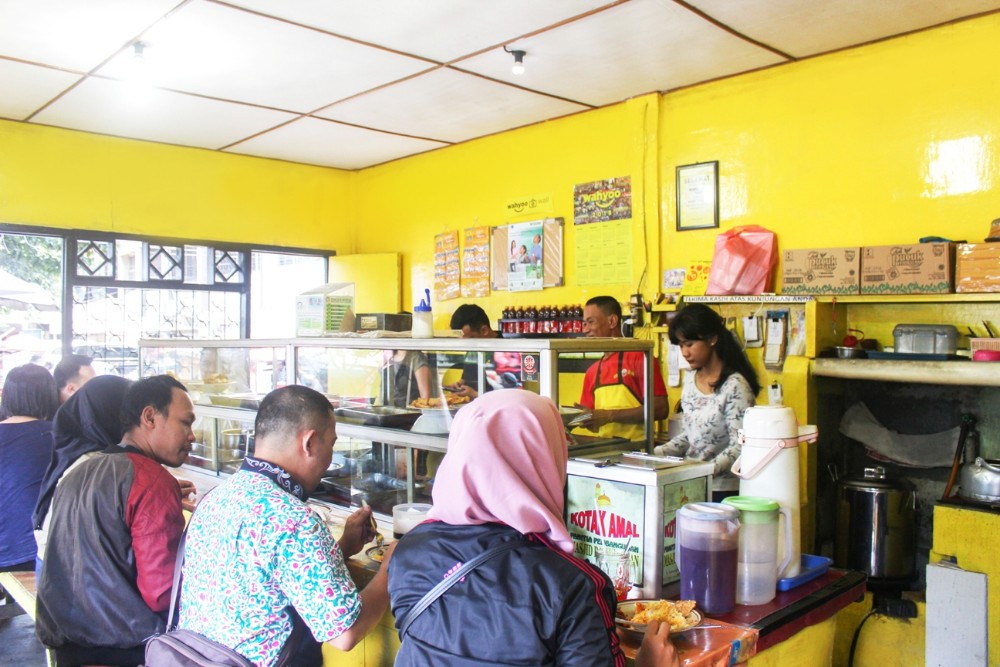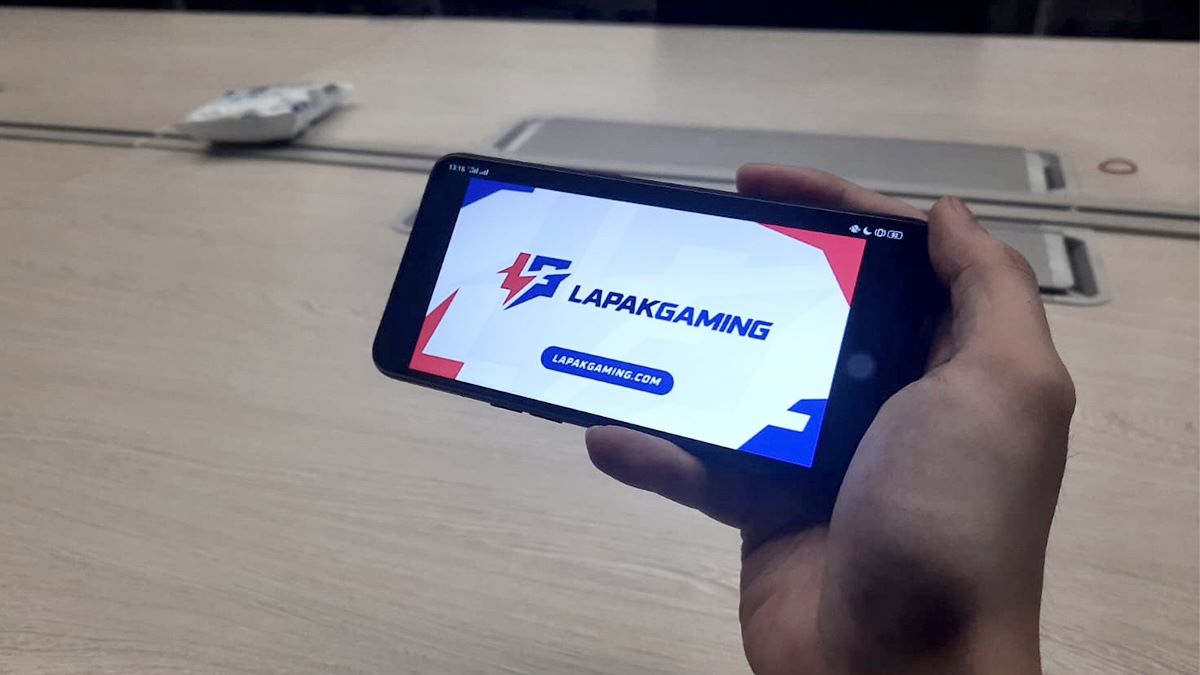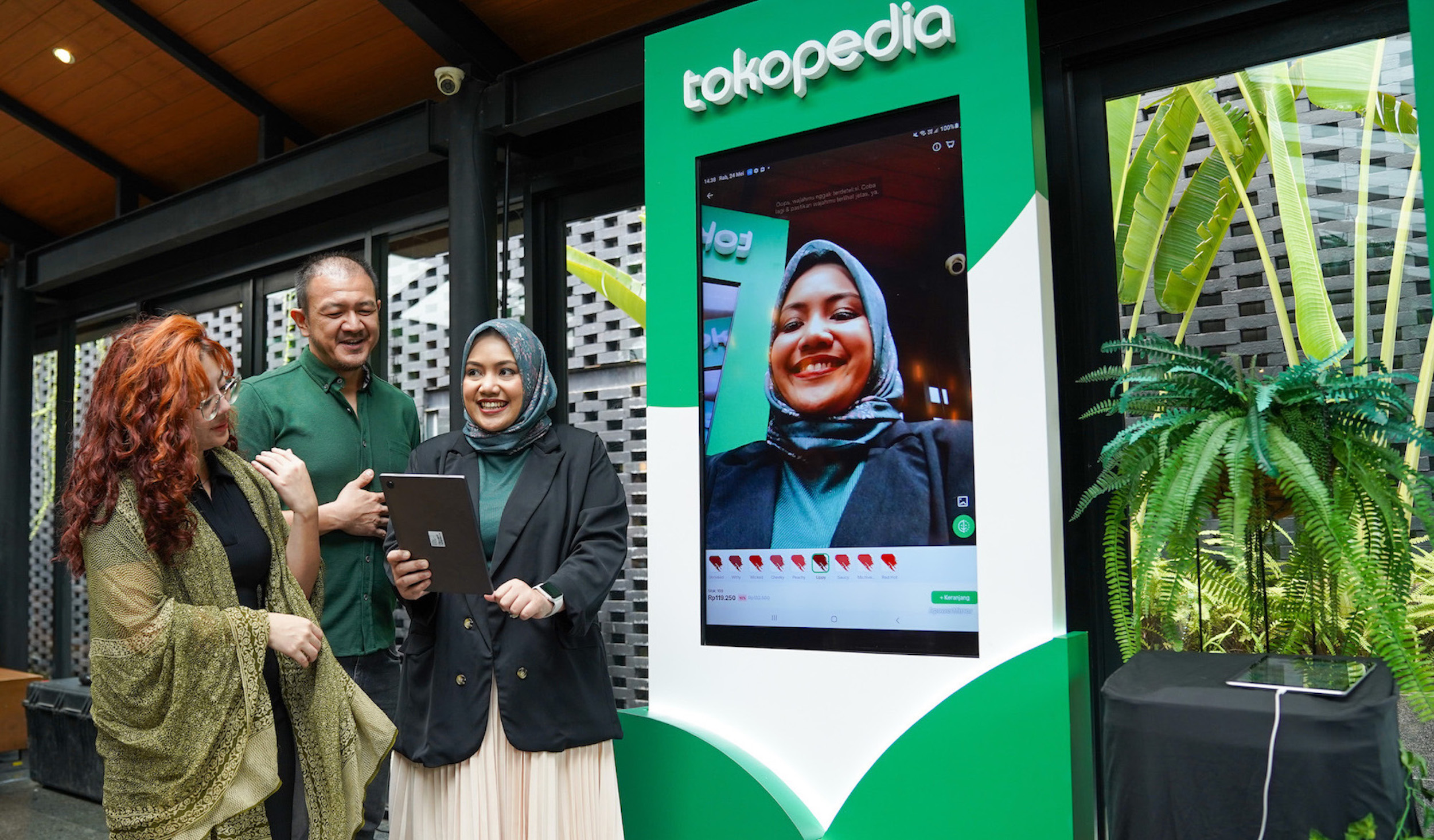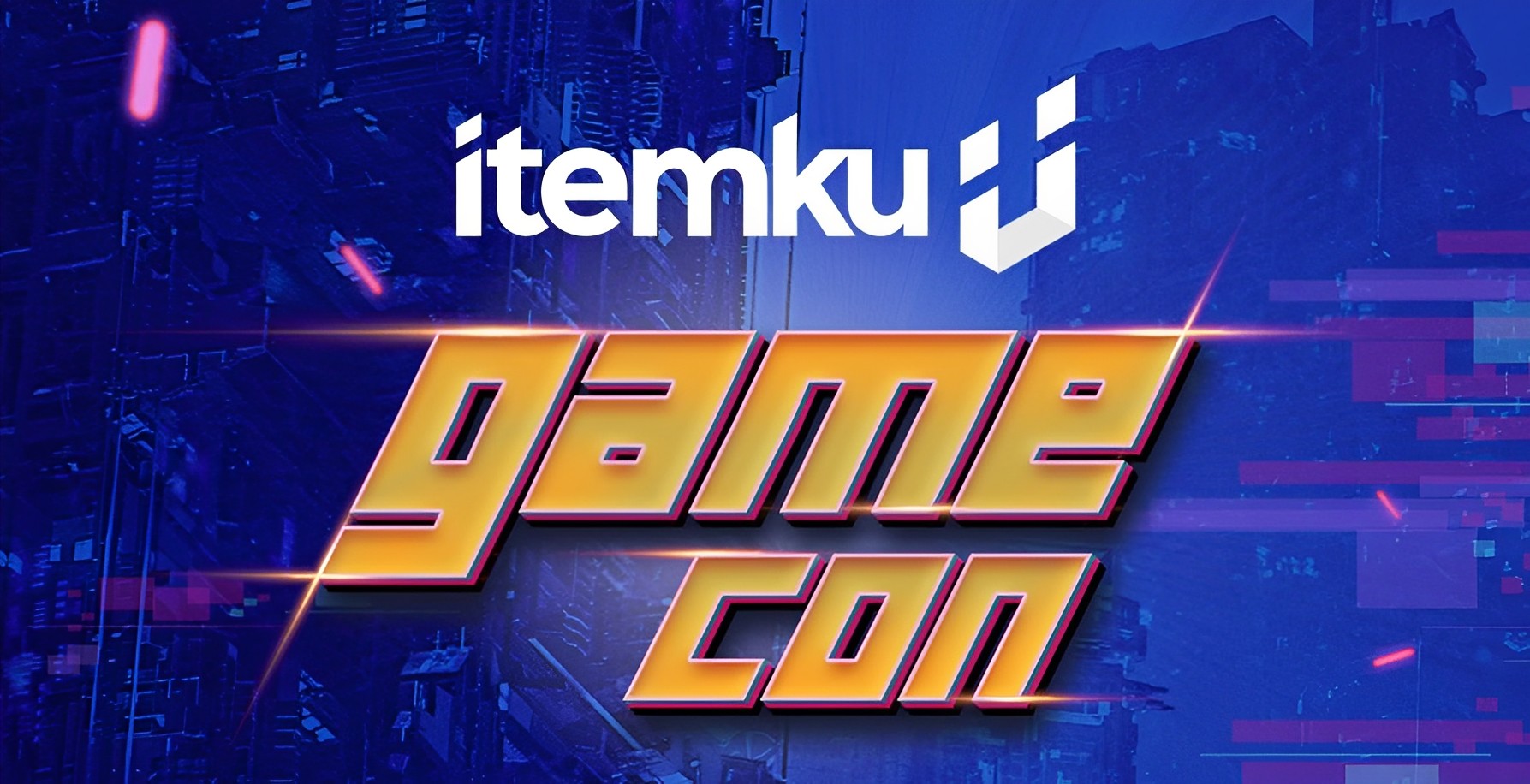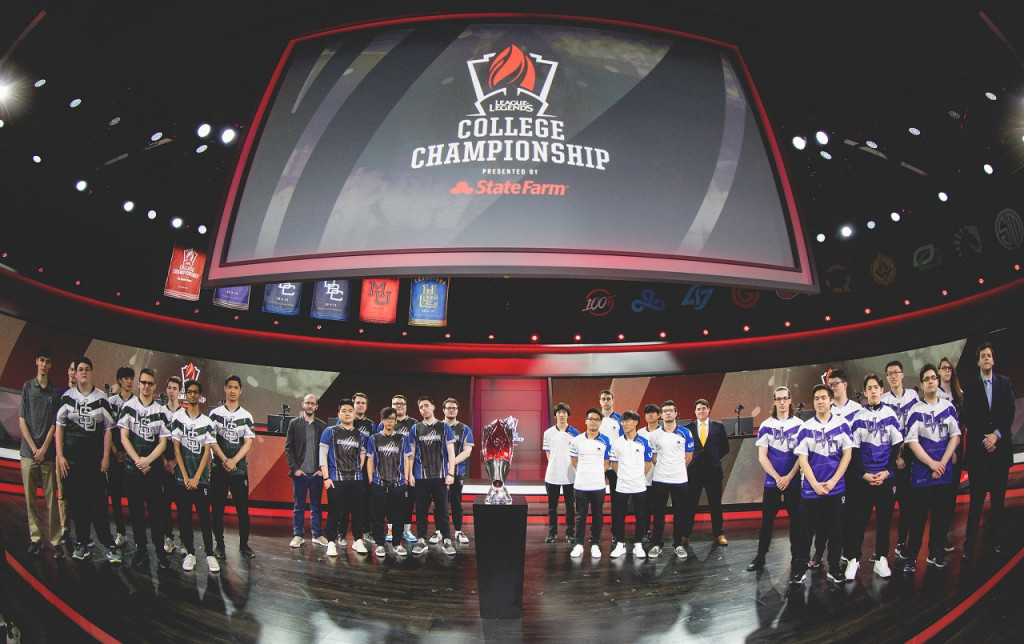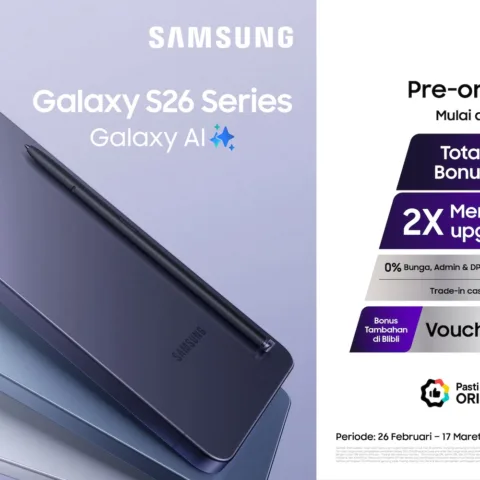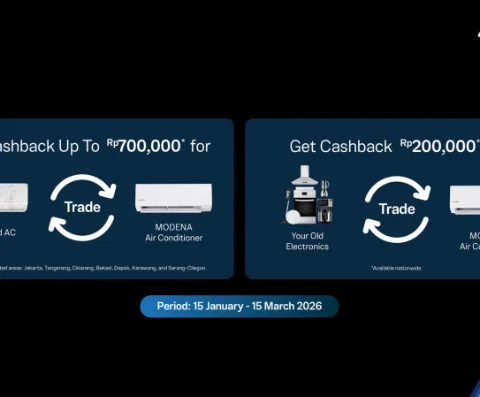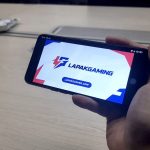In 2019, there are some specific solutions targeting mom-and-pop stores or warung in Indonesia, either food or supply chain segment. Names such as Wahyoo, Warung Pintar, Bukalapak, Tokopedia, and Grab are involved in the development of warung. Not only in terms of digitization, but also to improve the quality of the small businesses.
In the list of names mentioned, Wahyoo and Warung Pintar are quite different. Wahyoo, founded in 2017, aimed specifically at the food stall.
Using technology, Wahyoo delivers a solution for stall owners to have easy access to FMCG brands. Until the end of 2019, they’ve accommodated 13,050 food stalls.
Another one is Warung Pintar that provides solutions for mom-and-pop stores or personal retail. Modified the space with the latest trend, such as power outlets, wifi, TV, and many more.
Aside from Jabodetabek, Warung Pintar is expanding to Banyuwangi. Per 2019, Warung Pintar team is said to acquire 1,500 productive talents to gate the warung.
Meanwhile, Tokopedia, Bukalapak, and Grab are helping warung to grow in a particular way. Tokopedia with Mitra Tokopedia, Bukalapak with Mitra Bukalapak, and Grab with Grab Kios by Kudo. Those three have similar approach in terms of helping the warung business grow.
They provide warung’s owners with a special app, for the owners to have access also provide consumer’s needs through the app, such as balance top-up, data package, PPOB bills, and others.
2019 is the beginning, 2020 is for validation
What the tech-company did with solutions to the warung business is kind of innovative. In fact, it’s very potential to grow big. With tons of investment and 2019’s achievement, this year is going to be the stage for their solutions that is not only innovative but also comes with positive impact.
Wahyoo‘s CEO, Peter Shearer talked to DailySocial that they will be focused on product innovation and developing more features in the app.
“In 2020, we’re to focus on product innovation, developing more in-app features to answer their [warung’s owners] demand, build a strong relationship with strategic partners, such as Telco, financial institution, online transportation, supply chain startups, and many others,” he said.
Warung Pintar’s Co-founder and CEO, Agung Bezajrie Hadinegoro shared a similar response. After two years of listening to and learn from Warung Pintar’s merchant owners, he made a commitment to make a serious improvement in their services.
“This year’s innovation will be focused on providing high-quality services for warung’s owners. These past 2 years we’ve been learning from the owners, we’ve come to the conclusion that the grass-root community has been aware of the technology. It’s a matter of how the industry players create products in line with their needs and behavior. This year, we also aimed to expand to a broader area,” he continued.
For Tokopedia, Bukalapak, and Grab, the chance for warung’s prosperity is huge, considering those three are the giants that do not only create solutions but also grow the ecosystem. There are two things might happen to warung business, become the financial inclusion agent and the last supply chain distribution before it comes to consumers.
The e-money development with other digital payments is very likely to be integrated with warung and its position as the closer ones to the communities. In general, warung’s consumers are those in the neighborhood. The demand for warung that is used to be daily supply, such as rice, soaps, and others, can expand to financial needs, such as money transfer, disbursement, and others.
On the other side, to create a distribution chain with promising offers can make more benefits for warung business. Also, the various scheme of payments is to grow the warung business even bigger.
–
Original article is in Indonesian, translated by Kristin Siagian


